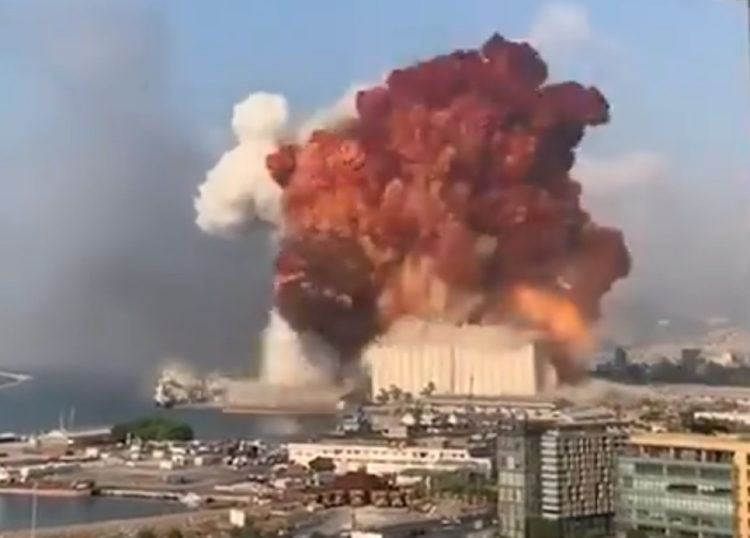On Tuesday, a massive explosion rocked Beirut, Lebanon’s capital. At least 100 have died and more than 4,000 are injured. Beirut’s governor Marwan Abboud said that some 300,000 people have lost their homes. The current estimation is that damages range from $3 to $5 billion. The explosion completely flattened the harbor front and surrounding buildings. The port is the country’s lifeline: repairing or replacing it could take years.
Lebanese President Michel Aoun called for an emergency cabinet meeting on Wednesday. He said that a two-week national emergency must be declared following the massive explosion. President Aoun assembled the high Defence Council following the explosion.
The explosion caused shockwaves across the city, causing harm and wreckage as far out as the outskirts of the capital. Officers stated they believe the number of casualties will rise further as emergency responders dig in the rubble in search of survivors. Authorities are currently offering the survivors meals, water, and shelter.
The cause of the explosion was not immediately apparent. Officials linked the blast to some 2,750 tones of confiscated ammonium nitrate (NO2) that had been stored in a warehouse at the port for six years. The warehouse was just a short distance’s walk from Beirut’s shopping and nightlife districts.
According to CNN, the blast was felt as far as Cyprus, hundreds of miles away. It registered as a 3.3 magnitude earthquake in the Lebanese capital.
Meanwhile, the EU commission said that it plans to urgently dispatch over 100 firefighters with vehicles, sniffer dogs, and equipment designed to find people trapped in urban areas.
The Czech Republic, France, Germany, Greece, Poland, and the Netherlands are taking part in the effort, and other countries are expected to also join.
Emergency medical aid and pop-up field hospitals have been dispatched to Lebanon as the world offers its support and pays tribute to the victims of the enormous explosion that devastated Beirut. Lebanon’s Prime Minister Hassan Diab has called on “friendly countries” to support the nation that is already reeling from its worst economic crisis in decades as well as from the coronavirus pandemic.
Already have an account? Sign In
Two ways to continue to read this article.
Subscribe
$1.99
every 4 weeks
- Unlimited access to all articles
- Support independent journalism
- Ad-free reading experience
Subscribe Now
Recurring Monthly. Cancel Anytime.
https://twitter.com/borzou/status/1290675854767513600
Gulf states were among the first to respond, with Qatar announcing it would send field hospitals to ease pressure on Lebanon’s strained medical system.
Washington also said it will help. “We extend our deepest condolences to all those affected, and stand ready to offer all possible assistance,” a State Department spokesperson said. The State Department urges U.S. citizens to “avoid the affected area” and “shelter in place and follow the directions of local authorities.”
“We have no information about the cause of the explosion and would refer you to the Government of Lebanon for further information,” the State Department further said.
“Stay strong, Lebanon.”










COMMENTS